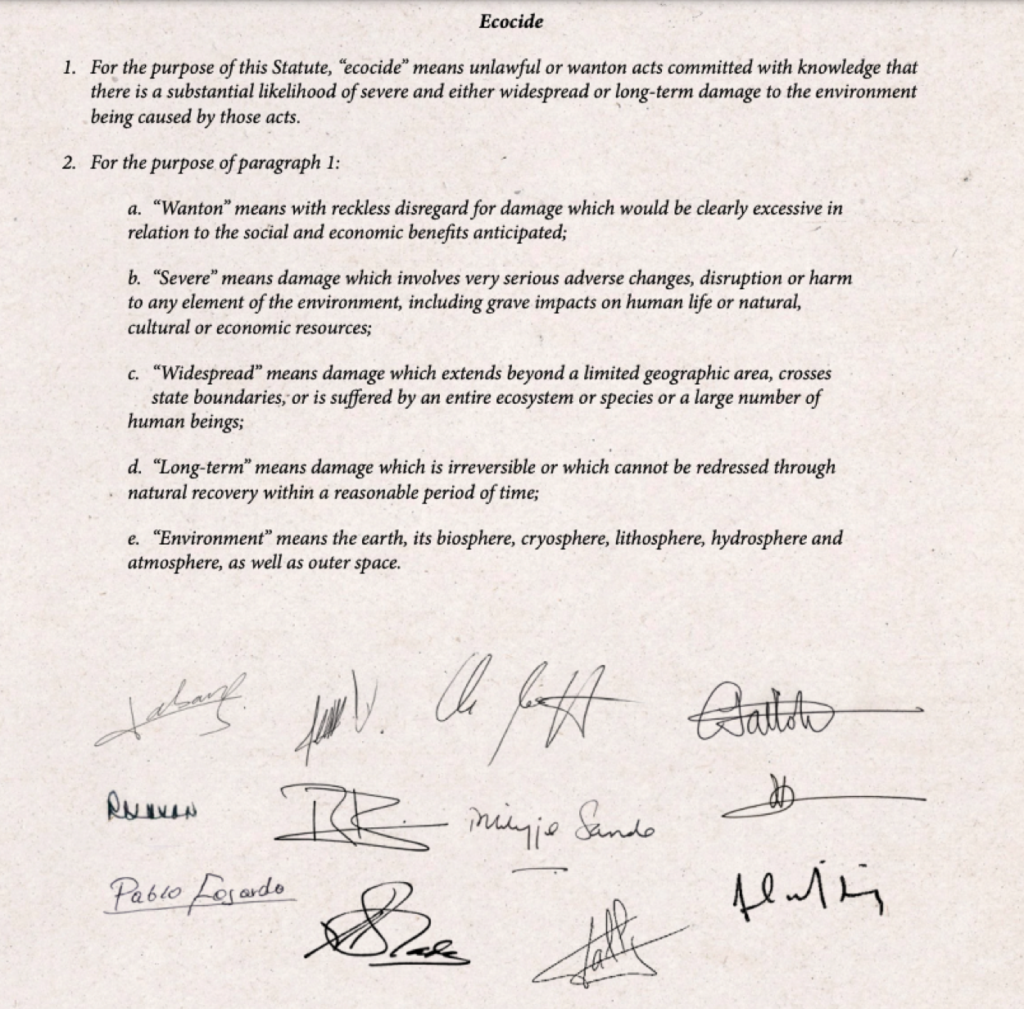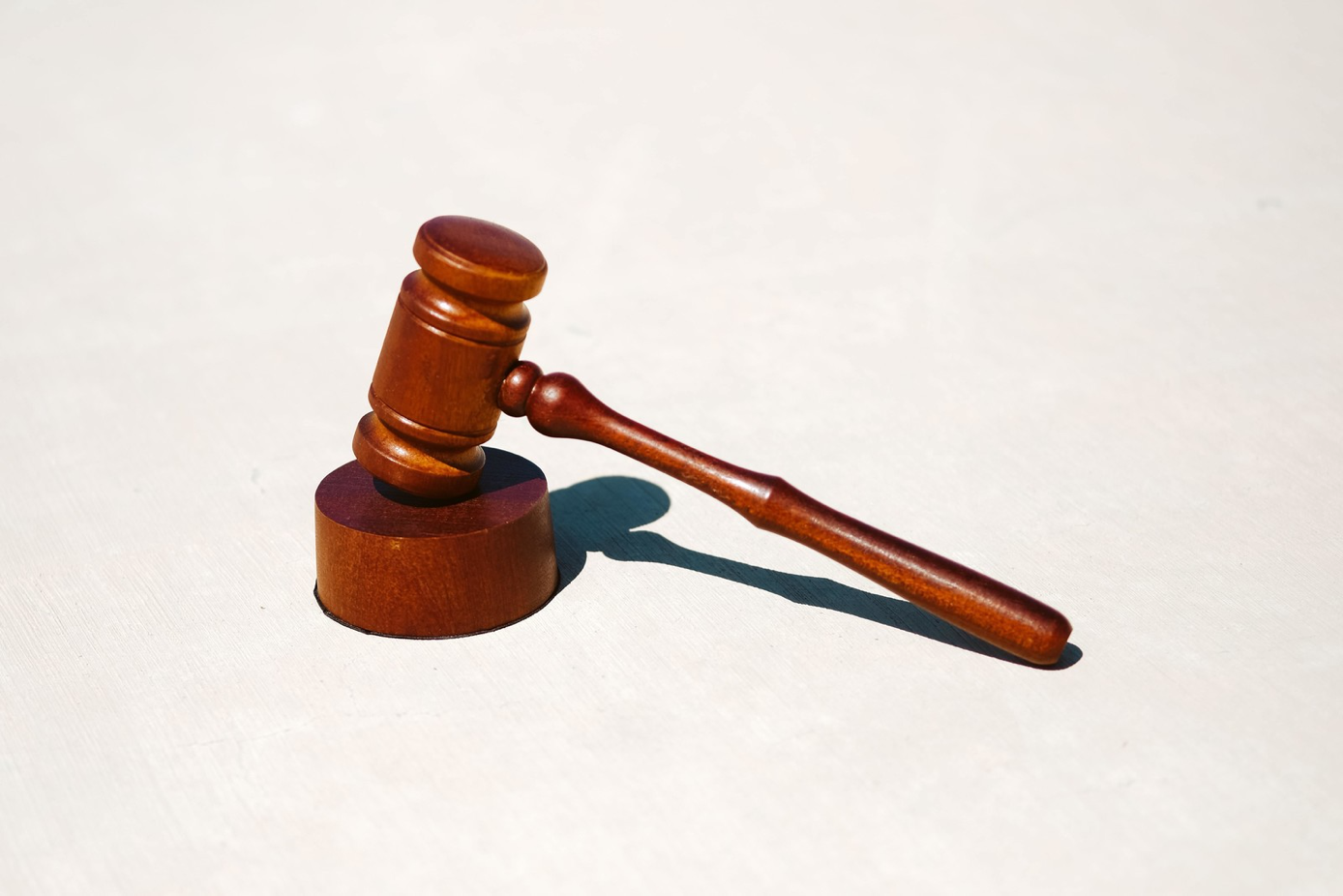What’s ‘ecocide’ and could it be prosecuted by the International Criminal Court?
01 Jul 2021
The International Criminal Court prosecutes some of the most heinous crimes.
A new plan wants to add environmental damage – or ‘ecoside’ – to its list of responsibilities.
If successful, it could help in the fight against the climate crisis.
A panel of criminal and environmental lawyers from around the world has created a legal definition for ‘ecocide’ as the basis of a push to criminalize mass damage and destruction of ecosystems.
The definition will be made available for states to consider and is part of an ongoing effort by NGO Stop Ecocide to add environmental damage to the list of international crimes at the International Criminal Court (ICC).
This would create an arrestable offence for anyone committing ecocide, and would make individuals responsible for acts or decisions that cause severe damage to the environment liable for criminal prosecution. Currently, companies found to have caused environmental harm are largely punished through fines or suing.
If the ICC backs the suggestion, however, it might be many years before ecocide joins the four existing international crimes within the Court’s jurisdiction.
Those four existing crimes are: genocide, war crimes, crimes against humanity, and acts of aggression (ie, one state or country attacking or threatening another). All four are concerned with the harms done to people through the actions of states or their representatives.
What is ecocide?
The expert panel defines ecocide as: “unlawful or wanton acts committed with knowledge that there is a substantial likelihood of severe and either widespread or long-term damage to the environment being caused by those acts.”
The call for greater protection for the environment has been increasing in urgency and volume in recent years. But the idea of making environmental harm a crime is almost 50 years old, as the US-based media organization NPR points out in a recent article.
In 1972, the Swedish statsminister, or prime minister, Olof Palme, gave a speech at the UN Conference on the Human Environment, in which he said: “The immense destruction brought about by indiscriminate bombing, by large-scale use of bulldozers and herbicides is an outrage sometimes described as ecocide, which requires urgent international attention.”

Ecocide and the UN SDGs
Many of the UN’s Sustainable Development Goals are related to protecting and securing the environment and natural resources. In its Sustainable Development Goals Report 2020, the UN stressed how much work still needs to be done: “One third of the way into our SDG journey, the world is not on track to achieve the global Goals by 2030.” The pandemic disrupted progress towards many of the goals and, “in some cases, turned back decades of progress.”
The report says that 3.2 billion people, which is almost half of humanity, is affected by degraded land that is leading to loss of biodiversity.
One of the panelists who worked on the ecocide proposal, Valérie Cabanes, an international lawyer and human rights expert from France, said: “By destroying the ecosystems on which we depend, we are destroying the foundations of our civilization and mortgaging the living conditions of all future generations. This is no less serious than war crimes, crimes against humanity, or the crimes of genocide or aggression. As well as being a major issue of global socio-environmental justice, is it not ultimately the survival of the human species that is at stake?”
Environmental damage also featured heavily in the World Economic Forum’s Global Risks Report 2021, where it remains the most worrisome long-term risk. “Environmental degradation will intersect with societal fragmentation to bring about dramatic consequences,” the report warns. “If managed poorly, these disruptions will hamper the ability of policy-makers and other leaders to act on different areas of risk.”




